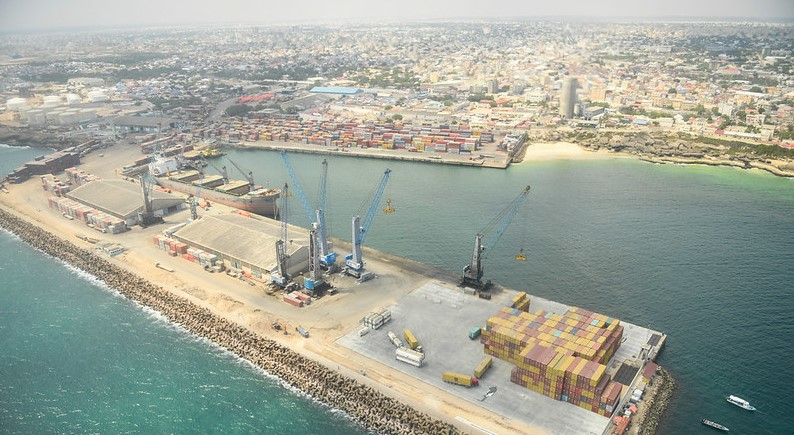Somalia raises Mogadishu port cargo handling to 250,000 units, positioning it to rival Mombasa, Dar es Salaam

The expansion nearly doubles the port’s throughput, enhancing its ability to meet rising trade demands and strengthening Somalia’s role in regional commerce.
Somalia has expanded the Mogadishu Port with a new container terminal, raising its annual cargo capacity from 150,000 to 250,000 units in a move officials say will fuel economic growth.
The move positions the capital’s port to rival Kenya’s Mombasa and Tanzania’s Dar es Salaam as regional trade hubs.
More To Read
- Somali President Hassan fires back after ex-leader Farmaajo’s warning on economic crisis
- Businesses granted 30-day relief on long-stay container charges at Mombasa port
- Government shifts cargo clearance to Nairobi, Naivasha in bid to decongest Mombasa Port
- Two new multipurpose vessels arrive at Mombasa Port to enhance marine operations
- Shimoni port welcomes first cruise ship, boosting Kwale County’s tourism revival
- Chinese warship in Mombasa for technical stop, cultural exchange
The new terminal was unveiled by Minister of Ports and Marine Transport Abdul Kadir Muhammad Nur, alongside newly-appointed port director Mohamed Ali Nur ‘Americo’.
The officials also broke ground on a new harbour headquarters, which will serve as the administrative and operational hub of Somalia’s busiest seaport.
The expansion nearly doubles the port’s throughput, enhancing its ability to meet rising trade demands and strengthening Somalia’s role in regional commerce.
Officials said the project is expected to spur investment, create jobs for young people and stimulate industries linked to shipping and logistics.
James Shikwati, founder and director of the Inter Region Economic Network, described the expansion as a milestone for Somalia and for Africa’s broader trade ambitions.
“We have to congratulate Somalia for upgrading its port capacity by nearly 100,000 units. This aligns with the African Continental Free Trade Area vision, which requires modern ports across the continent’s coastline. From a regional perspective, this is a very welcome announcement,” he said.
Analysts also note that the expanded terminal could reduce costs for landlocked neighbours. Ethiopia, home to more than 100 million people, currently depends almost entirely on Djibouti for its import and export needs. Mogadishu’s upgraded capacity could provide a shorter, cheaper alternative route, with additional benefits for South Sudan, Uganda, Rwanda, Burundi and the Democratic Republic of Congo.
Beyond its economic value, the development reflects growing investor confidence in Somalia despite long-standing security concerns. Shikwati said the involvement of international partners, particularly from the Middle East, highlights shifting geopolitical competition along the Indian Ocean trade corridor.
“By attracting partners willing to build in Somalia, the government is sending a message that the region has stability and potential,” he said.
“It also shows that emerging economies want a stronger voice in global trade.”
Top Stories Today













































